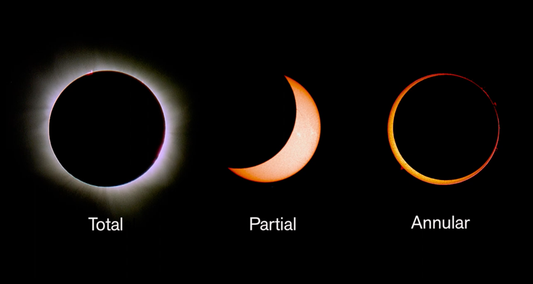The Upcoming Solar Eclipse in Houston, Texas: What to Expect and How to Prepare
A solar eclipse is a rare and awe-inspiring event where the Moon passes between the Earth and the Sun, casting a shadow on our planet. Houston, Texas, is in for a celestial treat, as the city will witness a partial solar eclipse on October 14, 2023. In this article, we will discuss what to expect, how to safely observe the eclipse, and ways to make the most of this extraordinary phenomenon.
-
What to Expect: On October 14, 2023, Houston residents will be able to observe a partial solar eclipse, where the Moon will partially cover the Sun. The eclipse will begin at approximately 12:34 PM local time and reach its maximum coverage at around 1:58 PM. The event will conclude at 3:17 PM. While not as dramatic as a total solar eclipse, the partial solar eclipse will still be a fascinating sight for skywatchers in the Houston area.
-
Importance of Proper Eye Protection: Safety is of paramount importance when observing a solar eclipse. Looking directly at the Sun without proper eye protection can cause permanent damage to your eyes. To safely view the eclipse, use solar viewing glasses or solar filters specifically designed for this purpose. Regular sunglasses, even if they are very dark, are not sufficient for solar eclipse viewing.
-
Where to Watch the Eclipse: There are several locations in and around Houston where you can enjoy the partial solar eclipse. Local parks, open spaces, and even your backyard can provide suitable viewing spots. Additionally, some organizations, such as the Houston Museum of Natural Science, might host special eclipse-viewing events or gatherings. Keep an eye out for announcements and updates from these institutions.
-
Hosting a Viewing Party: A solar eclipse is a great opportunity to connect with friends, family, and neighbors. Consider hosting a viewing party at your home or a local park. Provide solar viewing glasses for your guests, and set up a comfortable seating area with chairs or blankets. You can also prepare themed snacks and drinks, and engage in eclipse-related activities, such as crafting pinhole projectors or discussing the science behind the event.
-
Educational Opportunities: The solar eclipse offers a fantastic chance for children and adults alike to learn about astronomy and the workings of our solar system. Teachers and parents can incorporate eclipse-themed lessons and activities into their curriculum or daily routines in the days leading up to the event. Local libraries, museums, and science centers may also offer educational resources and programs related to the solar eclipse.
-
Eclipse Photography Tips: Capturing the beauty of a solar eclipse can be a rewarding experience, but it requires some planning and preparation. Here are some tips for photographing the solar eclipse:
- Use a tripod to stabilize your camera for clearer shots.
- Equip your camera or smartphone with a solar filter to protect the sensor from damage.
- Experiment with different exposure settings to find the best results.
- Use a remote shutter release or timer to minimize camera shake.
- Practice photographing the Sun in the days leading up to the eclipse to become familiar with your equipment and settings.
- Weather Considerations: The weather can be unpredictable, and clouds may obstruct the view of the eclipse. Keep an eye on the local forecast and have a backup plan in case of poor visibility. If necessary, consider traveling to a nearby location with clearer skies.
- Connecting with the Eclipse Community:There are numerous online communities and forums dedicated to solar eclipses where enthusiasts from around the world share their experiences, tips, and information. Joining these groups can provide you with valuable insights and help you connect with fellow eclipse chasers. Additionally, social media platforms like Facebook, Twitter, and Instagram can be useful for finding local events, viewing parties, and sharing your own eclipse experiences.
- Exploring the Science Behind Eclipses:Understanding the science behind solar eclipses can enhance your appreciation of the event. Research the different types of solar eclipses (total, annular, and partial), the geometry of the Earth, Moon, and Sun during an eclipse, and the various stages of a solar eclipse. This knowledge will provide a deeper understanding of the phenomenon and make the experience more meaningful.
- Preserving the Eclipse Experience: After witnessing the solar eclipse, consider ways to preserve the memory of the event for years to come. You might create a scrapbook with photos, news articles, and other memorabilia related to the eclipse. Alternatively, you can document your experience in a journal, blog post, or video to share with friends, family, and future generations.
- Planning for Future Eclipses:Once you have experienced the wonder of a solar eclipse, you may be eager to witness the next one. After the October 14, 2023 event, Houstonians can look forward to a partial solar eclipse on June 11, 2048. Start planning for future eclipses by researching the best locations for viewing, creating a checklist of necessary equipment, and connecting with fellow eclipse enthusiasts. As you continue your eclipse-chasing journey, you will create lifelong memories and further your appreciation for the beauty and complexity of our solar system.
The partial solar eclipse on October 14, 2023, will be a memorable event for Houston, Texas, residents. By preparing adequately, observing safety precautions, and engaging with the local community, you can make the most of this celestial phenomenon. As you witness the Moon partially obscuring the Sun, take a moment to marvel at the wonders of the universe and the incredible alignment of celestial bodies that make such an event possible.











